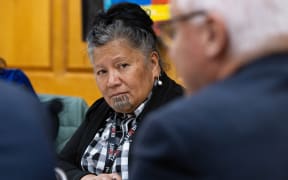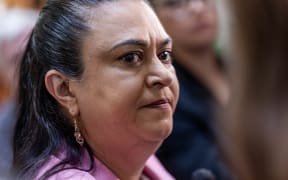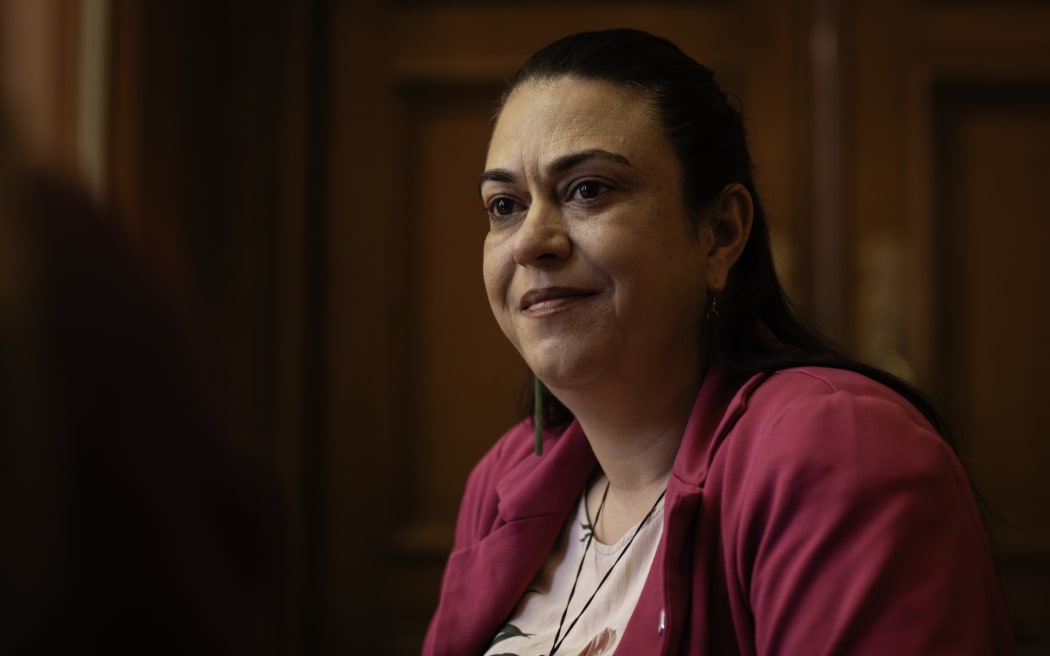
Minister for Children Karen Chhour says she has already met with several stakeholders to assure them their partnership will continue. Photo: RNZ / Angus Dreaver
Minister for Children Karen Chhour wants Oranga Tamiriki to establish more partnerships with Māori, despite introducing a bill to Parliament removing their obligation to do so.
The controversial Oranga Tamariki (Repeal of Section 7AA) Amendment Bill was introduced to Parliament this week, with Te Pāti Māori calling its introduction while the House was in recess "terrible and sneaky".
Speaking to RNZ, Chhour rejected the idea her work should stop because Parliament was in recess.
"Parliament does not shut down just because we're in recess. We've been very open with the Waitangi Tribunal and even the appeal."
The Crown had indicated to the Tribunal the dates for tabling the bill would be around mid-May, she said.
"They were well aware of the dates this could come out. It's not my decision and there is a process that needs to be followed and government does not stop just because its recess."
The bill would repeal Treaty obligations from the Oranga Tamariki Act, a move the Waitangi Tribunal found would breach the agency's Treaty obligations.
One of those obligations was the establishment of partnerships with iwi and Māori organisations, which Chhour said she would continue to support.
She had already met with several stakeholders to assure them their partnership would continue, she said.
"They just won't be under the title of a 7AA partnership. Everything that is happening now will continue, if what they are doing is to the betterment of our young people - which it definitely is.
"The work they are doing is absolutely amazing in their communities. They're reaching areas that we, as government, cannot reach and it shouldn't just be up to government to solve this issue."
Devolving services back to communities would allow them to do what they do best, she said.
'Evidence to show these partnerships actually do work'
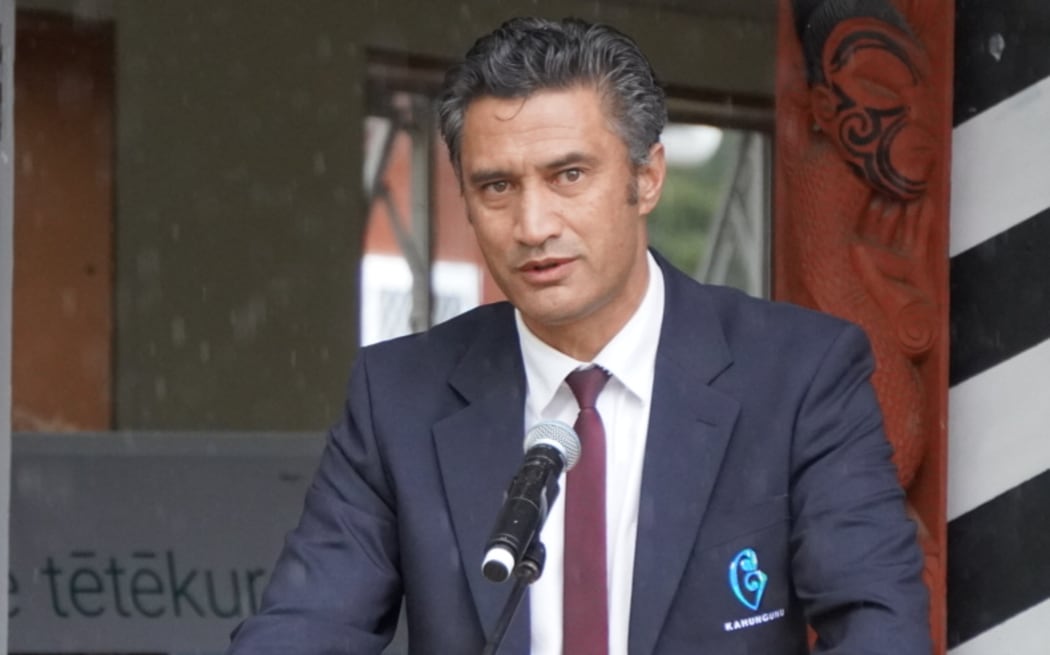
Ngāti Kahungunu chairperson Bayden Barber says he previously spoke to the minister about their opposition to the government's move. Photo: RNZ / Kate Green
Ngāti Kahungunu chairperson Bayden Barber, one of 10 iwi and Māori organisations who have partnered with Oranga Tamariki, said Chhour was one of the first ministers he spoke to when the government took power.
"I said straight up to her that repealing the 7AA section of Oranga Tamariki was hē rawa atu, we totally opposed it."
The partnership had worked well, Barber said.
"It has worked well because we've been able to pull the necessary pieces of the puzzle together; whānau providers, iwi, whakapapa.
"That's why it surprises me why the minister has gone down this track, because there is evidence to show these partnerships actually do work and have value."
Chhour told RNZ those partnership would stay and she was open to establishing more.
"I take my hat off to these iwi who are taking responsibility for the harm that is being caused in their community. I really do appreciate the work they are doing on the ground."
She also hit back at claims repealing 7AA would result in more harm to tamariki Māori.
"There are already sections of the Act that have those protections in place, those protections won't stop.
"I have to be perfectly honest, we have so many agencies reporting on exactly this. Each and every year and we're not actually actioning the recommendations of those reports.
"The judgements of how we're making placements since 7AA has come in has been clouded. Practice has gone bad. We're not putting safety first with our young people and Māori children deserve to be just as safe as any other child."
Since section 7AA's introduction, Oranga Tamariki had the highest level of harm in return-to-home placement since recording began, she claimed.
"When we have placements with whānau, it even says in our own care and protection reports that children will continue to be exposed to all types of harm," she said.
"Instead of looking at them as just a Māori child, we need to look at them as a child and what they need. This is me sending a clear message and opening up the discussion around the decision making for our young Māori children."
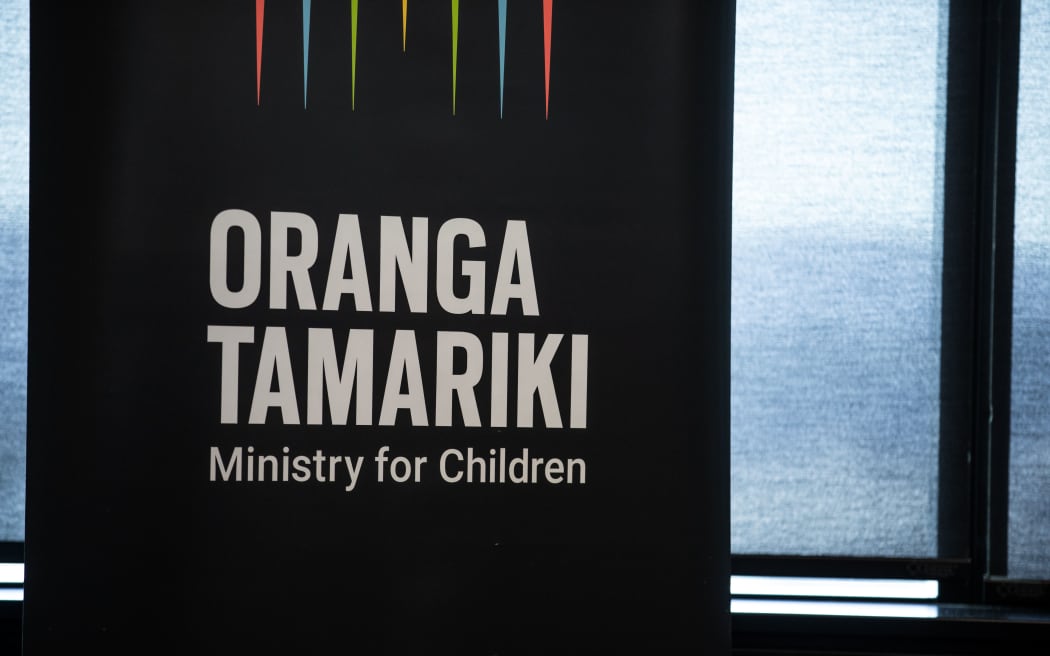
(file image) Photo: RNZ / Samuel Rillstone
'Much better for us to have it legislated'
Dr Moana Eruera is the chief executive of Ngāpuhi Iwi Social Services (NISS), the largest Iwi Social Service Provider in Aotearoa which also has a partnership with Oranga Tamariki.
The introduction of section 7AA was critical for the practical implementation of Te Tiriti o Waitangi by Oranga Tamariki, Dr Eruera said.
"For Ngāpuhi, that is paramount for our mokopuna who are engaged with the Crown."
Being the country's largest iwi meant more tamariki with whakapapa to Ngāpuhi were in the system, she said.
"We have three times more tamariki engaged with the system than any other iwi."
Ngāpuhi was one of the first iwi to partner with the agency.
"That was pre-2018, so actually before 7AA was introduced. Relationships can exist with the Crown outside 7AA, but it is much better for us to have it legislated so it requires the Crown to enact those obligations," Dr Eruera said.
"As far as Ngāpuhi is concerned, it should not be repealed."
Chhour said iwi could not do the work on their own.
"I often hear we should shut Oranga Tamariki down, but I also hear from iwi that they don't have the resources to do this on their own. It's about working together and making sure we're enabling each other to be the best we can be.
"Section 7AA, unfortunately, while well intended, didn't allow that to happen."
Bayden Barber agreed iwi should use their own resources to look after their tamariki.
"Look at the statistics, they speak for themselves. The majority of kids in harm's way are Māori. He whakapapa Māori, he toto Māori. We're in the best position to support our tamariki, our whānau, our parents. To ensure their future in housing, in welfare, jobs, employment, education. We're in the best place to do it, the government is not.
"Repealing 7AA is counter intuitive to what we as people are trying to achieve."
Chhour could not comment on the recent Waitangi Tribunal hearing and subsequent Court of Appeal judgment as the Crown was still considering whether to seek appeal, she said.

